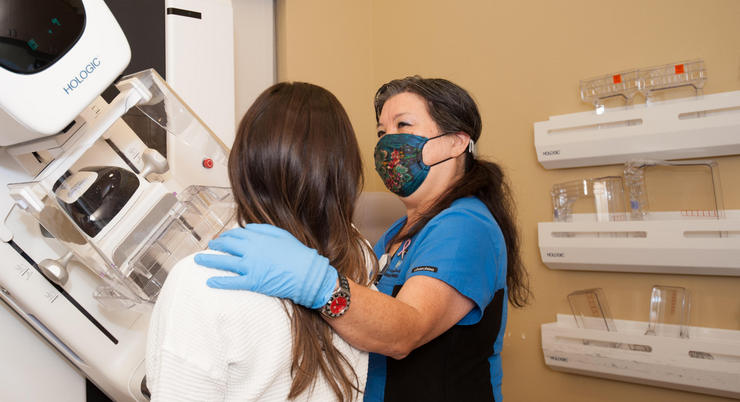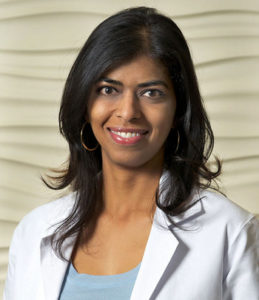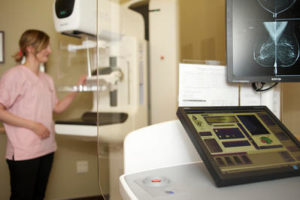
[Image courtesy Huntington Hospital]
Huntington Hill Breast Center screening facilities are now equipped with artificial intelligence to aid specialized radiologists interpret 3D mammogram images for more precise and accurate results, representatives said.
The improved imaging technology combined with AI can help medical professionals detect cancers early, as well as cut down on false positives and additional tests, according to Dr. Lakshmi Tegulapalle, who serves as medical director of breast imaging for The Hill Medical Corp., which operates three breast screening centers in Pasadena in partnership with Huntington Hospital, as well as others in Arcadia, West Covina and Glendora.
“That’s important because we know that early cancer detection is really key to increase survival rates,” Tegulapalle said.

Lakshmi Tegulapalle, DO, Medical Director of the Breast Imaging Program, Jim & Eleanor Randall Breast Center. [Image courtesy Huntington Hospital]
With radiologists specializing in the area, along with 3D mammography and AI assistance, the centers are able to provide patients with a “triple threat” against cancer, Huntington Hospital said in a written statement.
“The historical 2D mammography was essentially two images of each breast,” Tegulapalle explained. “3D mammography is multiple images of each breast and two views. So we could get up to hundreds of images and it’s just the basic slicing through of the tissue, much like pages in a book. This allows us to scroll through and see through the breast tissue a little bit better than the standard 2D mammography. It helps us decrease false positives and it’s more efficient.”
The advent of FDA-approved AI software into the screening process gives medical professionals yet another tool to detect cancer.
“It uses computer-aided detection to help point in the direction of where the radiologist needs to be a little bit more concerned,” according to Tegulapalle. “The radiologist will look at all of the images, but then they will go back and focus a little bit closer on the areas that the computer-aided detection points us to.”
Patients will likely notice no difference in their experience, with the possible exception of the imaging taking slightly longer than in the past, the doctor said.

The Breast Center’s new tomography machine. [Image courtesy Huntington Hospital]
Breast cancer screenings, and cancer screenings in general, dropped significantly during the pandemic, Tegulapalle said. She urged people to get back on track with their recommended screenings.
“And at the [Jim & Eleanor] Randall Breast Center in Pasadena alone, we saw a decrease in mammograms by 37% last year, and a decrease in invasive cancer diagnosis by about 22%. Some institutions around the country have seen even further drops,” she said.
“And this is really concerning for us in the oncology world, because we know that cancers didn’t pause because of COVID, and we know that early detection is key,” the doctor said.
“We strongly encourage women to also advocate for themselves and their own health and their breast health. We believe that screening mammograms are crucial first steps,” Tegulapalle said.
“The advancements in technology are great. We’re very excited about AI and 3D mammography,” she said. “What we really need right now is for women to come back and have their mammograms because so many women were fearful to return to medical care because of the pandemic. We want to encourage them to do that at this time.”
More information on the Hill Medical Corp. and its locations is available online at hillmedical.com.














